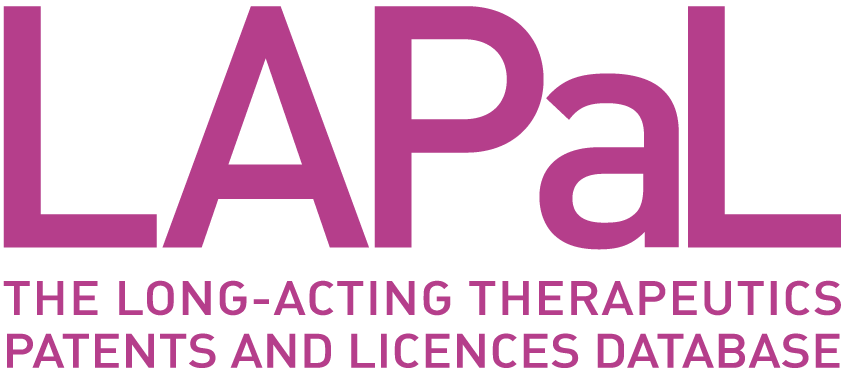
|
Developed by 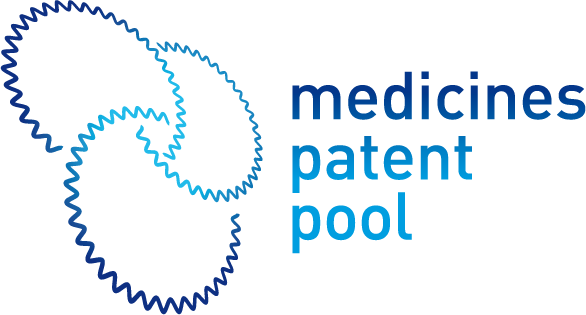

|
Supported by 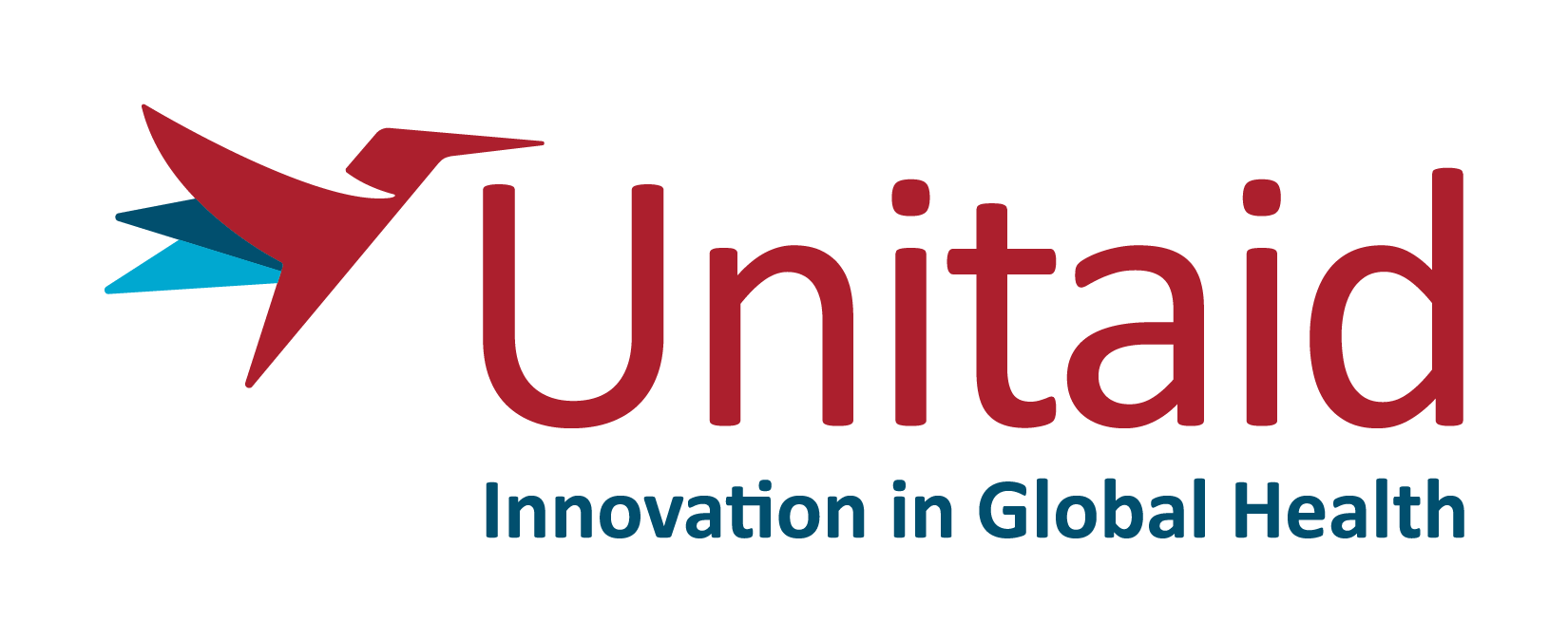
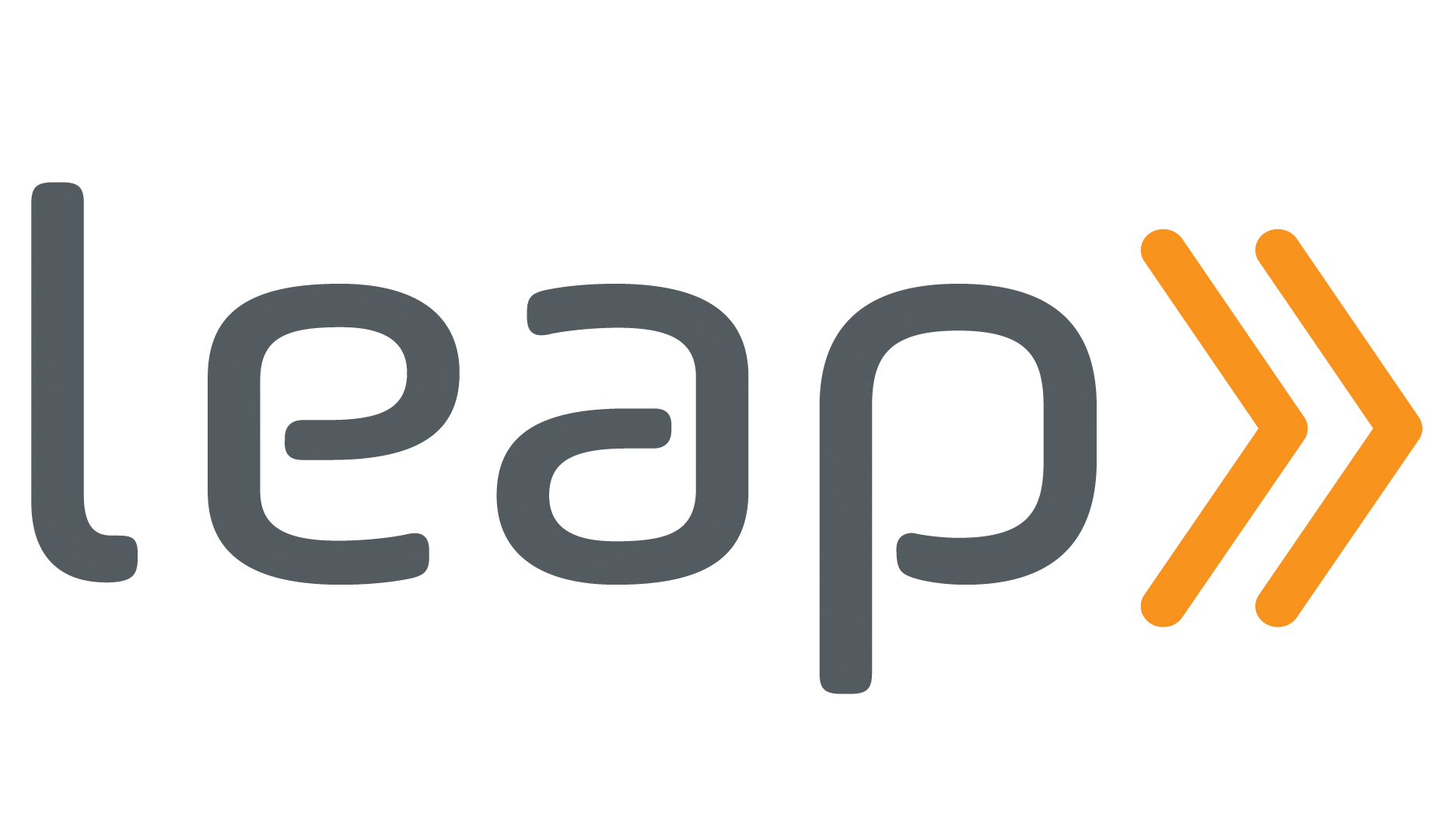
|
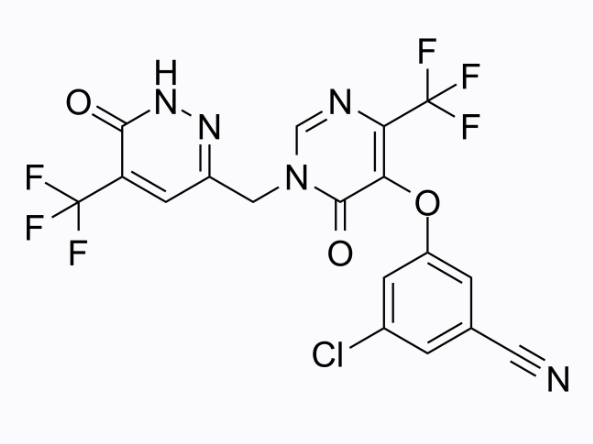
Ulonivirine (MK-8507)
Developer(s)
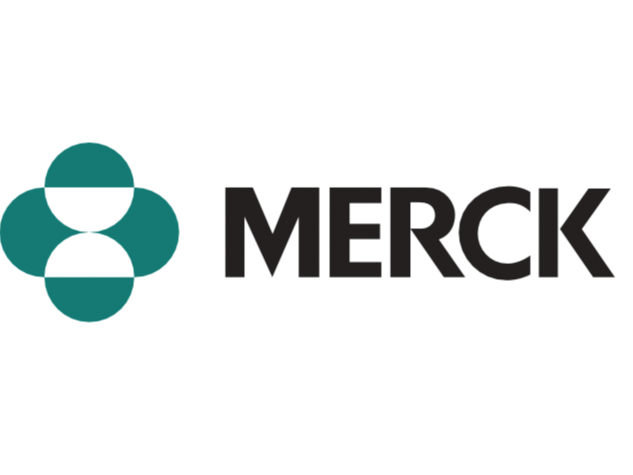
|
MSD Originator
https://www.msd.com/
United States Merck & Co., Inc. is an American multinational pharmaceutical company known as Merck Sharp & Drone (MSD) in territories outside of the USA and Canada. Merck was originally established in 1891, and is currently headquartered in Rahway, New Jersey. The company is particularly well known for developing and manufacturing biologic therapies, vaccines, medicines and animal health products. |
Drug structure

MK-8507 Chemical Structure
Sourced from https://www.medchemexpress.com/ulonivirine.html
Drug information
Associated long-acting platforms
Oral solid form
Administration route
Oral
Therapeutic area(s)
Use case(s)
Use of drug
Ease of administration
User acceptance
Not provided
Dosage
Available dose and strength
Not provided
Frequency of administration
Not provided
Maximum dose
Not provided
Recommended dosing regimen
Not provided
Additional comments
Not provided
Dosage link(s)
Not provided
Drug information
Drug's link(s)
Generic name
Brand name
Compound type
Summary
Approval status
Regulatory authorities
Delivery device(s)
No delivery device
Scale-up and manufacturing prospects
Scale-up prospects
Not provided
Tentative equipment list for manufacturing
Not provided
Manufacturing
Not provided
Specific analytical instrument required for characterization of formulation
Not provided
Clinical trials
8507-003
Identifier
NCT02174159
Link
https://clinicaltrials.gov/study/NCT02174159
Phase
Phase I
Status
Completed
Sponsor
Merck Sharp & Dohme LLC
More details
The study will evaluate the safety, tolerability, pharmacokinetics, and antiretroviral activity of a single dose of ulonivirine in antiretroviral therapy (ART)-naive, HIV-1 infected participants. The hypothesis tested in the study is that at a safe and well-tolerated dose, ulonivirine has superior antiretroviral activity to a historical placebo control, as measured by change from baseline in plasma HIV-1 ribonucleic acid (RNA) at 168 hours postdose.
Purpose
Evaluation of Safety, Tolerability, Pharmacokinetics, and Antiretroviral Activity of Ulonivirine (MK-8507) in Human Immunodeficiency Virus (HIV-1)-Infected Participants (MK-8507-003)
Interventions
Intervention 1
Countries
Not provided
Sites / Institutions
Not provided
Trials dates
Anticipated Start Date
Not provided
Actual Start Date
2014-09-15
Anticipated Date of Last Follow-up
2023-04-06
Estimated Primary Completion Date
Not provided
Estimated Completion Date
Not provided
Actual Primary Completion Date
2015-07-16
Actual Completion Date
2015-07-23
Studied populations
Age Cohort
- Adults
Genders
- All
Accepts pregnant individuals
No
Accepts lactating individuals
No
Accepts healthy individuals
No
Comments about the studied populations
Inclusion Criteria: * Male, or non-pregnant and non-breastfeeding female, or postmenopausal or surgically sterile female (confirmed with medical records, examination, or laboratory test). Male participants with female partner of childbearing potential agrees to use a medically acceptable method of contraception during the study and 90 days after receiving study drug. * Body mass index \<=35 kg/m\^2 * Other than HIV infection, baseline health judged to be stable at screening and/or prior to administration of study drug * No clinically-significant electrocardiogram abnormality * Documented to be HIV-1 positive as determined by a positive enzyme-linked immunosorbent assay (ELISA) or quantitative polymerase chain reaction (PCR) result with confirmation * Has a screening plasma Cluster of Diff
Health status
Study type
Interventional (clinical trial)
Enrollment
18
Allocation
Not provided
Intervention model
Parallel Assignment
Intervention model description
Not provided
Masking
Open label
Masking description
None (Open Label)
Frequency of administration
Studied LA-formulation(s)
Studied route(s) of administration
Use case
Treatment
Key results
| Type of key results | Title | Website link |
|---|---|---|
| Article | Single Oral Doses of MK-8507, a Novel Non-Nucleoside Reverse Transcriptase Inhibitor, Suppress HIV-1 RNA for a Week. | https://doi.org/10.1097/qai.0000000000002834 |
8507-014
Identifier
NCT05093972
Link
https://clinicaltrials.gov/study/NCT05093972
Phase
Phase I
Status
Not yet recruiting
Sponsor
Merck Sharp & Dohme LLC
More details
The purpose of this study is to evaluate pharmacokinetics (PK) and safety of a single oral dose of ulonivirine in participants with mild or moderate hepatic impairment (HI). It is hypothesized that the area under the plasma concentration-time curve from dosing to (extrapolated) infinity (AUC0-∞) in participants with mild or moderate HI is similar to that of healthy control participants.
Purpose
Ulonivirine (MK-8507) in Participants With Mild or Moderate Hepatic Impairment (MK-8507-014)
Interventions
Intervention 1
Countries
Not provided
Sites / Institutions
Not provided
Trials dates
Anticipated Start Date
2026-04-07
Actual Start Date
2025-04-07
Anticipated Date of Last Follow-up
2025-02-14
Estimated Primary Completion Date
2026-09-10
Estimated Completion Date
2026-09-10
Actual Primary Completion Date
2024-05-10
Actual Completion Date
2025-09-10
Studied populations
Age Cohort
- Adults
- Older Adults
Genders
- All
Accepts pregnant individuals
Unspecified
Accepts lactating individuals
Unspecified
Accepts healthy individuals
Yes
Comments about the studied populations
Inclusion Criteria: Mild and Moderate HI (Panels A and B): * Has a diagnosis of chronic (\>6 months), stable HI with features of cirrhosis due to any etiology (stability of hepatic disease should correspond to no acute episodes of illness within the previous 2 months due to deterioration in hepatic function) Healthy Controls (Panel C): * Is in good health All Participants (Panels A to C): * Has a body mass index (BMI) ≥18.5 and ≤40 kg/m\^2, inclusive * If male, uses contraception in accordance with local regulations * If female, is not pregnant or breastfeeding and one of the following applies: 1) is not a woman of childbearing potential (WOCBP), or 2) is a WOCBP and is abstinent/uses acceptable contraception, has a negative highly sensitive pregnancy test within 24 hours of receivin
Health status
Not provided
Study type
Interventional (clinical trial)
Enrollment
22
Allocation
Not provided
Intervention model
Parallel Assignment
Intervention model description
Not provided
Masking
Open label
Masking description
Not provided
Frequency of administration
Not provided
Studied LA-formulation(s)
Not provided
Studied route(s) of administration
Not provided
Use case
Treatment
Key results
8591-013
Identifier
NCT04564547
Link
https://clinicaltrials.gov/study/NCT04564547
Phase
Phase II
Status
Completed
Sponsor
Merck Sharp & Dohme LLC
More details
This is a randomized, controlled, double-blind, study to evaluate the safety and tolerability of islatravir (ISL) + ulonivirine based on review of the accumulated safety data, in adult participants with human immunodeficiency virus type 1 (HIV-1) who have been virologically suppressed for ≥6 months on bictegravir/emtricitabine/tenofovir alafenamide (BIC/FTC/TAF) once-daily.
Purpose
Dose Ranging, Switch Study of Islatravir (ISL) and Ulonivirine (MK-8507) Once-Weekly in Virologically-Suppressed Adults With Human Immunodeficiency Virus Type 1 (HIV-1) [MK-8591-013]
Interventions
Intervention 1
Intervention 2
Intervention 3
Intervention 4
Intervention 5
Countries
Sites / Institutions
Not provided
Trials dates
Anticipated Start Date
Not provided
Actual Start Date
2021-03-09
Anticipated Date of Last Follow-up
2025-02-10
Estimated Primary Completion Date
2020-09-25
Estimated Completion Date
2020-09-25
Actual Primary Completion Date
2025-01-30
Actual Completion Date
2025-01-30
Studied populations
Age Cohort
- Adults
- Older Adults
Genders
- All
Accepts pregnant individuals
Unspecified
Accepts lactating individuals
Unspecified
Accepts healthy individuals
No
Comments about the studied populations
Inclusion Criteria: * Is HIV-1 positive with plasma HIV-1 RNA \<50 copies/mL at screening * Has been virologically suppressed on BIC/FTC/TAF for ≥6 months * Has a screening CD4+ T-cell count \>200 cells/mm\^3 (completed by the central laboratory) * Is male or female, at least 18 years of age, at the time of signing the informed consent * female participant is eligible to participate if she is not pregnant or breastfeeding, and at least one of the following conditions applies: * Is not a woman of childbearing potential (WOCBP) * Is a WOCBP and using a contraceptive method that is highly effective (with a failure rate of \<1% per year), or be abstinent from heterosexual intercourse as their preferred and usual lifestyle (abstinent on a long term and persistent basis) Exclusion Criteria: *
Health status
Study type
Interventional (clinical trial)
Enrollment
161
Allocation
Randomized
Intervention model
Parallel Assignment
Intervention model description
Not provided
Masking
Triple-blind masking
Masking description
Not provided
Frequency of administration
Studied LA-formulation(s)
Studied route(s) of administration
Use case
Treatment
Key results
8507-016
Identifier
NCT06619678
Link
https://clinicaltrials.gov/study/NCT06619678
Phase
Phase I
Status
Completed
Sponsor
Merck Sharp & Dohme LLC
More details
The main goals of this study are to learn what happens to Islatravir or MK-8507 in a person's body over time. Researchers will compare Islatravir given alone to Islatravir given with MK-8507. Researchers will also compare MK-8507 given alone to MK-8507 given with Islatravir.
Purpose
A Study of MK-8507 and Islatravir (MK-8591) in Healthy Adult Participants (MK-8507-016)
Interventions
Intervention 1
Countries
Sites / Institutions
Not provided
Trials dates
Anticipated Start Date
Not provided
Actual Start Date
2024-01-17
Anticipated Date of Last Follow-up
2024-09-27
Estimated Primary Completion Date
Not provided
Estimated Completion Date
Not provided
Actual Primary Completion Date
2024-06-23
Actual Completion Date
2024-06-23
Studied populations
Age Cohort
- Adults
- Older Adults
Genders
- All
Accepts pregnant individuals
Unspecified
Accepts lactating individuals
Unspecified
Accepts healthy individuals
Yes
Comments about the studied populations
Inclusion Criteria: The key inclusion criteria include but are not limited to the following: * Is in good health before randomization * Has a body mass index (BMI) ≥18 and ≤32 kg/m\^2, inclusive Exclusion Criteria: The key exclusion criteria include but are not limited to the following: * Has a history of clinically significant endocrine, gastrointestinal (GI), cardiovascular, hematological, hepatic, immunological, renal, respiratory, genitourinary, or major neurological (including stroke and chronic seizures) abnormalities or diseases * Has a history of cancer with protocol specified exceptions
Health status
Not provided
Study type
Interventional (clinical trial)
Enrollment
36
Allocation
Not provided
Intervention model
Sequential assignment
Intervention model description
Experimental: Islatravir+MK-8507 Period 1: Participants receive single dose of Islatravir on Day 1. Period 2: Participants receive single dose of MK-8507 on Days 1 and Days 8. Period 3: Participants receive single dose of Islatravir and single dose of MK-8507 on Day 1, 7 days after the Day 8 dose of MK-8507, during Period 2. Participants will receive additional MK-8507 single doses on Days 8, 15, 22, and 29.
Masking
Open label
Masking description
Not provided
Frequency of administration
Studied LA-formulation(s)
Studied route(s) of administration
Use case
Treatment
Key results
8591B-060
Identifier
NCT06891066
Link
https://clinicaltrials.gov/study/NCT06891066
Phase
Phase II
Status
Recruiting
Sponsor
Merck Sharp & Dohme LLC
More details
Investigators are trying to find better treatments for people with HIV-1. In this clinical study, investigators want to see how well a new treatment called ISL+ULO, taken once a week, works compared to an existing treatment called BIC/FTC/TAF, which is taken every day. Investigators will check how many people still have a high level of the virus in their blood after 24 weeks. The investigators also want to understand if the new treatment, MK-8591B, is safe and how well people can handle it.
Purpose
A Study of Islatravir (ISL) and Ulonivirine (ULO) Once Weekly (QW) in Virologically Suppressed Adults With Human Immunodeficiency Virus Type 1 (HIV-1) (MK-8591B-060)
Interventions
Intervention 1
Intervention 2
Intervention 3
Countries
Not provided
Sites / Institutions
Not provided
Trials dates
Anticipated Start Date
2025-04-21
Actual Start Date
2025-04-14
Anticipated Date of Last Follow-up
2025-05-10
Estimated Primary Completion Date
2027-09-24
Estimated Completion Date
2027-09-24
Actual Primary Completion Date
Not provided
Actual Completion Date
Not provided
Studied populations
Age Cohort
- Adults
- Older Adults
Genders
- All
Accepts pregnant individuals
Unspecified
Accepts lactating individuals
Unspecified
Accepts healthy individuals
No
Comments about the studied populations
Inclusion: The main inclusion criteria include but are not limited to the following: - Has been receiving Bictegravir/Emtricitabine/Tenofovir alafenamide (BIC/FTC/TAF) therapy with documented viral suppression \[Human immunodeficiency virus type 1 (HIV-1) ribonucleic acid (RNA) \<50 copies/mL\] for ≥6 months prior to providing documented informed consent and has no history of prior virologic treatment failure on any past or current regimen. Exclusion: The main exclusion criteria include but are not limited to the following: * Has Human immunodeficiency virus type 2 (HIV-2) infection. * Has a diagnosis of an active Acquired immune deficiency syndrome (AIDS)-defining opportunistic infection. * Has active hepatitis C virus (HCV) coinfection. * Has hepatitis B virus (HBV) coinfection. * H
Health status
Not provided
Study type
Interventional (clinical trial)
Enrollment
150
Allocation
Randomized
Intervention model
Parallel Assignment
Intervention model description
Not provided
Masking
Open label
Masking description
Not provided
Frequency of administration
Not provided
Studied LA-formulation(s)
Not provided
Studied route(s) of administration
Not provided
Use case
Not provided
Key results
| Type of key results | Title | Website link |
|---|---|---|
| Article | Merck's link to clinical trial NCT06891066 | https://www.merckclinicaltrials.com/trial/nct06891066/ |
MK-8507-015
Identifier
EUCT2023-506697-12-00
Link
https://euclinicaltrials.eu/ctis-public/view/2023-506697-12-00?lang=en
Phase
Phase I
Status
Completed
Sponsor
Merck Sharp & Dohme LLC, Merck Sharp & Dohme LLC
More details
Not provided
Purpose
MK-8507 Extended Multiple Dose Study
Interventions
Not provided
Countries
Sites / Institutions
Not provided
Trials dates
Anticipated Start Date
2023-10-20
Actual Start Date
2023-10-20
Anticipated Date of Last Follow-up
Not provided
Estimated Primary Completion Date
Not provided
Estimated Completion Date
2024-06-07
Actual Primary Completion Date
Not provided
Actual Completion Date
2024-05-31
Studied populations
Age Cohort
- Adults
Genders
- All
Accepts pregnant individuals
Unspecified
Accepts lactating individuals
Unspecified
Accepts healthy individuals
Yes
Comments about the studied populations
Healthy volunteers
Health status
Not provided
Study type
Not provided
Enrollment
Not provided
Allocation
Not provided
Intervention model
Not provided
Intervention model description
Not provided
Masking
Not provided
Masking description
Not provided
Frequency of administration
Not provided
Studied LA-formulation(s)
Not provided
Studied route(s) of administration
Not provided
Use case
Not provided
Key results
Excipients
Proprietary excipients used
Not provided
Novel excipients or existing excipients at a concentration above Inactive Ingredients Database (IID) for the specified route of administration
Not provided
Residual solvents used
Not provided
Patent info
Description
Prodrugs of HIV reverse transcriptase inhibitors
Brief description
Ulonivirine prodrugs
Representative patent
WO2015153304
Category
Compound (prodrug)
Patent holder
Merck Sharp & Dohme Corp.
Exclusivity
Not provided
Expiration date
March 27, 2035
Status
Granted in Brazil, China, India, US, Europe
Description
Ulonivirine (MK-8507) - 5-phenoxy-3H-pyrimidin-4-one derivates and their use as HIV reverse transcriptase inhibitors
Brief description
Ulonivirine compound and analogues and their use as HIV reverse transcriptase inhibitors
Representative patent
WO2014058747
Category
compound
Patent holder
Merck Sharp & Dohme Corp.
Exclusivity
Not provided
Expiration date
September 29, 2033
Status
Granted in: AR, ARIPO (BW, GH, KE, NA), BR, CL, CN, CO, CR, DZ, EAPO (AM, AZ, BY, KZ, RU) EP, GE, GT, ID, IN, IR, KR, MA, MN, MX, NG, PE, PH, UA, US, VN, ZA Pending in: DO, NI, PK, SV, TH, VE
Supporting material
Publications
Fluoride Pharmacokinetics in Urine and Plasma Following Multiple Doses of MK-8507, an Investigational, Oral, Once-Weekly Nonnucleoside Reverse Transcriptase Inhibitor. Gillespie G. et al., J Clin Pharmacol. 2022 Feb;62(2):199-205. doi: https://doi.org/10.1002%2Fjcph.1957. Epub 2021 Nov 12. PMID: 34435371; PMCID: PMC9298720.
MK‐8507 is an investigational HIV‐1 nonnucleoside reverse transcriptase inhibitor being developed for the treatment of HIV‐1 infection. MK‐8507 contains 2 trifluoromethyl groups that may result in fluoride release through metabolism, but the extent of MK‐8507–related fluoride release in humans has yet to be determined. This double‐blind, placebo‐controlled, 2‐period, parallel‐group, multiple‐dose trial in healthy participants without HIV‐1 who were administered a fluoride‐restricted diet and once‐weekly doses of MK‐8507 aimed to estimate the relationship between MK‐8507 dose and fluoride exposure. A total of 15 adult male and 3 adult female (of non‐childbearing potential) participants were randomized to receive MK‐8507 200 mg (n = 6), MK‐8507 800 mg (n = 6), or placebo (n = 6). Change from baseline in mean daily fluoride excretion averaged over 7 days following the administration of MK‐8507 200 mg resulted in a net mean increase of 19.8 μmol (90% confidence interval, 12.2‐27.4) relative to placebo and did not exceed 57 μmol, a threshold related to the mean difference between the daily reference dose set by the US Environmental Protection Agency and the average dietary fluoride intake in the United States. However, daily urinary fluoride excretion exceeded the threshold following administration of 800 mg MK‐8507 (75.1 μmol [90% confidence interval, 67.5‐82.7]). Assuming a linear relationship between MK‐8507 dose and estimated mean daily fluoride released at steady‐state, data interpolation suggests that the US Environmental Protection Agency reference dose for fluoride would not be exceeded in most patients when administering MK‐8507 at doses currently under clinical investigation (≤400 mg once weekly).
Pharmacokinetic and Safety Profile of the Novel HIV Nonnucleoside Reverse Transcriptase Inhibitor MK-8507 in Adults without HIV. Ankrom W et al., Antimicrob Agents Chemother. 2021 Nov 17;65(12):e0093521. doi: https://doi.org/10.1128%2FAAC.00935-21. Epub 2021 Sep 13. PMID: 34516246; PMCID: PMC8597757.
MK-8507 is a novel HIV-1 nonnucleoside reverse transcriptase inhibitor in clinical development with potential for once-weekly oral administration for the treatment of HIV-1 infection. Two randomized, double-blind, placebo-controlled phase 1 studies in adults without HIV-1 evaluated the safety, tolerability, and pharmacokinetics of single and multiple doses of MK-8507; drug interaction with midazolam (a cytochrome P450 3A4 substrate) and food effect were also assessed. In study 1, 16 participants received oral ascending single doses of MK-8507 (2 to 400 mg) or placebo in an alternating fashion. In study 2, 24 participants received ascending single doses of MK-8507 (400 to 1,200 mg) or placebo and multiple doses (once weekly for 3 weeks) of MK-8507 (100 to 400 mg) or placebo. MK-8507 pharmacokinetics were approximately dose proportional at 2 to 1,200 mg. MK-8507 had a time to maximum concentration of 2 to 7 h and a mean terminal half-life of ∼58 to 84 h. MK-8507 doses of ≥100 mg achieved a plasma concentration at 168 h postdose (7 days) associated with antiviral efficacy. A high-fat meal had no clinically meaningful effect on MK-8507 pharmacokinetics, and MK-8507 400 mg once weekly had no clinically meaningful effect on midazolam pharmacokinetics. Single and multiple doses of MK-8507 were generally well tolerated. No trends with dose and no clinically meaningful changes were observed in vital signs, electrocardiograms, and laboratory safety tests. The pharmacokinetics and safety data are supportive of once-weekly oral administration and support further clinical investigation of MK-8507 for the treatment of HIV-1 infection.
Single Oral Doses of MK-8507, a Novel Non-Nucleoside Reverse Transcriptase Inhibitor, Suppress HIV-1 RNA for a Week. Schürmann D. et al. J Acquir Immune Defic Syndr. 2022;89(2):191-198. doi:10.1097/QAI.0000000000002834
Background: MK-8507 is a novel HIV-1 non-nucleoside reverse transcriptase inhibitor being developed for treatment of HIV-1 infection. MK-8507 has high antiviral potency in vitro and pharmacokinetic (PK) properties that support once-weekly dosing.
Setting: A phase 1, open-label, proof-of-concept study was conducted in treatment-naive adults with HIV-1 infection to assess monotherapy antiviral activity.
Methods: In 3 sequential panels, participants aged 18-60 years with baseline plasma HIV-1 RNA ≥10,000 copies/mL and CD4+ T-cell count >200/mm3 received a single oral dose of 40, 80, or 600 mg MK-8507 in the fasted state. Participants were assessed for HIV-1 RNA for at least 7 days, PKs for 14 days, and safety and tolerability for 21 days postdose.
Results: A total of 18 participants were enrolled (6 per panel). The mean 7-day postdose HIV-1 RNA reduction ranged from ∼1.2 to ∼1.5 log10 copies/mL across the doses assessed. One patient had a viral rebound associated with emergence of an F227C reverse transcriptase variant (per chain-termination method sequencing) 14 days postdose; this variant was found in a second participant by ultra-deep sequencing as an emerging minority variant. MK-8507 PKs were generally dose-proportional and similar to observations in participants without HIV-1 infection in prior studies; mean MK-8507 half life was 56-69 hours in this study. MK-8507 was generally well tolerated at all doses.
Conclusions: The robust antiviral activity, PK, and tolerability of MK-8507 support its continued development as part of a complete once weekly oral regimen for HIV-1 treatment; combination therapy could mitigate the emergence of resistance-associated variants.
Li G, Wang Y, De Clercq E. Approved HIV reverse transcriptase inhibitors in the past decade [published correction appears in Acta Pharm Sin B. 2023 Aug;13(8):3581. doi: 10.1016/j.apsb.2023.06.004.]. Acta Pharm Sin B. 2022;12(4):1567-1590. doi:10.1016/j.apsb.2021.11.009
HIV reverse transcriptase (RT) inhibitors are the important components of highly active antiretroviral therapies (HAARTs) for anti-HIV treatment and pre-exposure prophylaxis in clinical practice. Many RT inhibitors and their combination regimens have been approved in the past ten years, but a review on their drug discovery, pharmacology, and clinical efficacy is lacking. Here, we provide a comprehensive review of RT inhibitors (tenofovir alafenamide, rilpivirine, doravirine, dapivirine, azvudine and elsulfavirine) approved in the past decade, regarding their drug discovery, pharmacology, and clinical efficacy in randomized controlled trials. Novel RT inhibitors such as islatravir, MK-8504, MK-8507, MK8583, IQP-0528, and MIV-150 will be also highlighted. Future development may focus on the new generation of novel antiretroviral inhibitors with higher bioavailability, longer elimination half-life, more favorable side-effect profiles, fewer drug-drug interactions, and higher activities against circulating drug-resistant strains.
Additional documents
No documents were uploaded
Useful links
There are no additional links
Access principles
|
|
Collaborate for developmentConsider on a case by case basis, collaborating on developing long acting products with potential significant public health impact, especially for low- and middle-income countries (LMICs), utilising the referred to long-acting technology Not provided |
|
|
Share technical information for match-making assessmentProvide necessary technical information to a potential partner, under confidentiality agreement, to enable preliminary assessment of whether specific medicines of public health importance in LMICs might be compatible with the referred to long-acting technology to achieve a public health benefit Not provided |
|
|
Work with MPP to expand access in LMICsIn the event that a product using the referred to long-acting technology is successfully developed, the technology IP holder(s) will work with the Medicines Patent Pool towards putting in place the most appropriate strategy for timely and affordable access in low and middle-income countries, including through licensing Not provided |
Comment & Information
Not provided